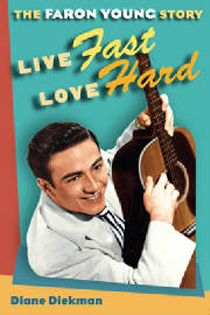 I learned today that earthworms only have a few thousand brain cells, and according to Douglas Hofstadter in his book Godel, Escher, Bach, every earthworm brain is like every other earthworm brain. I guess if you've seen one earthworm, you've seen them all.
I learned today that earthworms only have a few thousand brain cells, and according to Douglas Hofstadter in his book Godel, Escher, Bach, every earthworm brain is like every other earthworm brain. I guess if you've seen one earthworm, you've seen them all.Each mammal, each human is one-of-a-kind. Our brains basically come from the same mold, but Hofstadter assures us each brain has evolved into something unique. The scary part, I think, comes when psychologists discuss the architecture of these unique brains. Most of the building apparently takes place within the FIRST TWO YEARS OF LIFE. According to Norman N. Holland's book "Robert Frost's Brain":
The child's brain develops virtually all its potentially useful neural interconnections by the age of two, and then goes on to develop a lot more. The brains of children from three to eleven use twice as much energy as adults' brains. Specifically, in the first year of life, the metabolic rate of the baby's brain (established by PET scan) is about two-thirds that of an adult brain. By the age of two, the rate equals the adult's. During those two years, the neurons have been branching and interconnecting. Indeed, during the first year of life, "dendritic and synaptic elaboration" increases by a factor of 20. Then, by three or four, the metabolic rate becomes twice that of an adult's. By the age of six or seven, a child's brain equals in weight and volume an adult's, but it uses twice as much energy, and it has twice the number of synaptic connections. The brain stays "super- charged" until early adolescence. Then, from eleven to fourteen, the metabolic rate begins to fall until it subsides to the adult level. Similarly, there are twice as many synaptic connections in the cortex of a child's brain as in an adult's. Then that number falls by half in early adolescence. Young children experience twice as much deep sleep as adults, and then from eleven to fourteen years of age, children move into adult sleep patterns.With all of this energy and growth, it rather explains why childhood plays such a major part in making us who we are. The experiences of childhood stay with us forever and show up in unexpected places.
For example Holland discovers a childhood moment in one of Robert Frost's poems.
Once by the Pacific
The shattered water made a misty din.
Great waves looked over others coming in,
And thought of doing something to the shore
That water never did to land before.
The clouds were low and hairy in the skies,
Like locks blown forward in the gleam of eyes.
You could not tell, and yet it looked as if
The shore was lucky in being backed by cliff,
The cliff in being backed by continent;
It looked as if a night of dark intent
Was coming, and not only a night, an age.
Someone had better be prepared for rage.
There would be more than ocean-water broken
Before God's last Put out the Light was spoken.
It appears to be a description of storm, yet the simple word usage suggests a child's view of this event. Frost remembers in his memoirs the moment that prompted this poem, yet doesn't elaborate on what all was going on. According to Holland this has more to do with human sexuality, parents, abandonment than with an ocean storm. For more of his critique, please visit UCF's online copy of "Robert Frost's Brain", page 16.
As a mother, I belatedly realize how vital those first few years of life were for my sons. In hindsight would I do things differently? I would hope so. But maybe this little blog can motivate parents to take more seriously the childhood experiences they offer their children, the environment in which they raise their children, the amount of time their child feels 'abandoned' such as Frost felt in this poem, and the number of times they hug their babies and introduce them to something new.
Why do we dumb down the way we talk to our children, the books we read to them, the explanations we give them? Maybe with higher expectations, a broader spectrum of information and opportunities, we will help our children expand their little neurons.
If I had my babies back today, I would read to them of their world. Books about the solar system, color, sound, the golden Phi, snowflake architecture and the history of man. I would spend lest time reading of giant jam sandwiches and dirty dogs and steam shovels. Although, I enjoyed those books as much as they did. I still do. I wonder what that says about my childhood.






















1 comment:
I wanted to comment on the You-tube war video, but couldn't find the comment link. So I'll say it here, Dawn. that was a powerful visual of man's inhumanity to man. War is hell. Still . . . it focused on US atrocities; we can't lose sight of the fact that horrible things go on under all regeimes. We are no better than other countries, but no worse either.
Man's inhumanity to man . . . why won't it cease?
Post a Comment